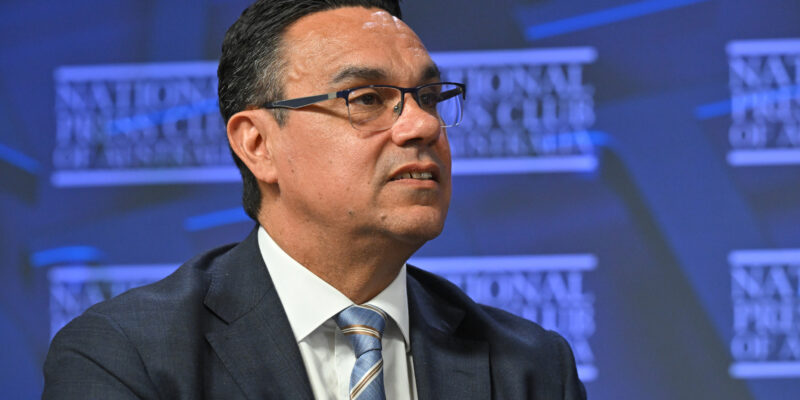Australia shuts the laundry door
Of the $1.1 billion of criminals’ assets seized by AFP between July 2019 and June 2024, more than $720 million involved real estate. Now federal authorities are working to close the gap and pushing lawyers and conveyancers to fall in line.

LAWYERS and real estate agents face tough anti-money laundering regulations under plans to tighten the regime in Australia.
Up to 100,000 individuals and businesses will need to meet significant reporting obligations under so-called Tranche 2 measures currently being discussed by the government.
They would extend Know Your Customer (KYC)-style steps that banks were forced to adopt after the Commonwealth Bank was exposed and fined $700 million for allowing criminals to funnel tens of millions of dollars through its smart ATMs.
Since 2015, when Australia was labelled a soft target, akin to countries like Haiti, Madagascar, China and the US, there have been ongoing calls to extend these KYC steps to the property sector where the vulnerability is described as “very high”.
Given that the real estate sector is worth $10.4 trillion – three times that of the Australia stock market – it is understandable that the government is under pressure to act.
Much of that pressure has come from the global Financial Action Task Force (FATF), of which Australia was a founding member. But while it has toughened anti-money laundering and counter-terrorism financing measures since being shamed in 2015, it is a “matter of concern” that risks still exist.
“Australia is still falling short of meeting all standards set to help combat criminal abuse of our financial system,” said Attorney-General Mark Dreyfus after the latest FATF report in March.
He echoed these comments at the launch of the latest government risk assessment, where he highlighted that property was a main target for money launderers.
“These criminals are constantly looking for new ways to exploit our systems and launder the proceeds of their crime through Australian real estate and our economy more generally,” he said.
“It’s a matter of concern that since 2015, Australia has failed to comply with key FATF standards, including extending the AML/CTF regime to Tranche 2 entities, which include lawyers, accountants, real estate agents and dealers in precious metals and stones.
“Australia is now one of only five jurisdictions out of more than 200 that do not regulate Tranche 2 entities, placing Australia at risk of being ‘grey-listed’ by the FATF, which could result in significant harm to our economy.”
His latest comments came at the launch of a 120-page National Risk Assessment by AUSTRAC – the Australian Transaction Reports and Analysis Centre – which has repeatedly noted that property is a soft target.
In fact, it is one of only a few areas deemed to pose a “very high and stable money laundering vulnerability”, according to the new report.
“The actual value of money laundering through Australia’s real estate market is difficult to estimate,” the report notes.
But it is one of the commonly identified asset types in criminal confiscation investigations, and Australia is one of the most attractive real estate markets globally, says the report, which warns: “Real estate will continue to pose a very high money laundering vulnerability over the next three years, driven largely by the market’s stability and high value.”
Of the $1.1 billion criminals assets seized by the Australian Federal Police (AFP) between July 2019 and June 2024, more than $720 million involved real estate. More than 370 residential and commercial properties were seized over the same period.
“Australia’s strong and liquid property market makes it an attractive destination for criminals to both store value and enjoy the fruits of their illicit activity,” an AFP spokesperson said.
“Tranche 2 aims to improve the transparency of the Australian real property sector and bring visibility of suspicious transactions to regulators and the police, thereby reducing its exploitation by money launderers.”
The Tranche 2 measures that are certain to be implemented will have a significant impact on the property sector, according to practitioners.
Queensland Law Society chief executive Matt Dunn told Australian Conveyancer that the reforms would have significant workload and ethical challenges for the industry, saying they were one of the biggest issues facing the industry.




